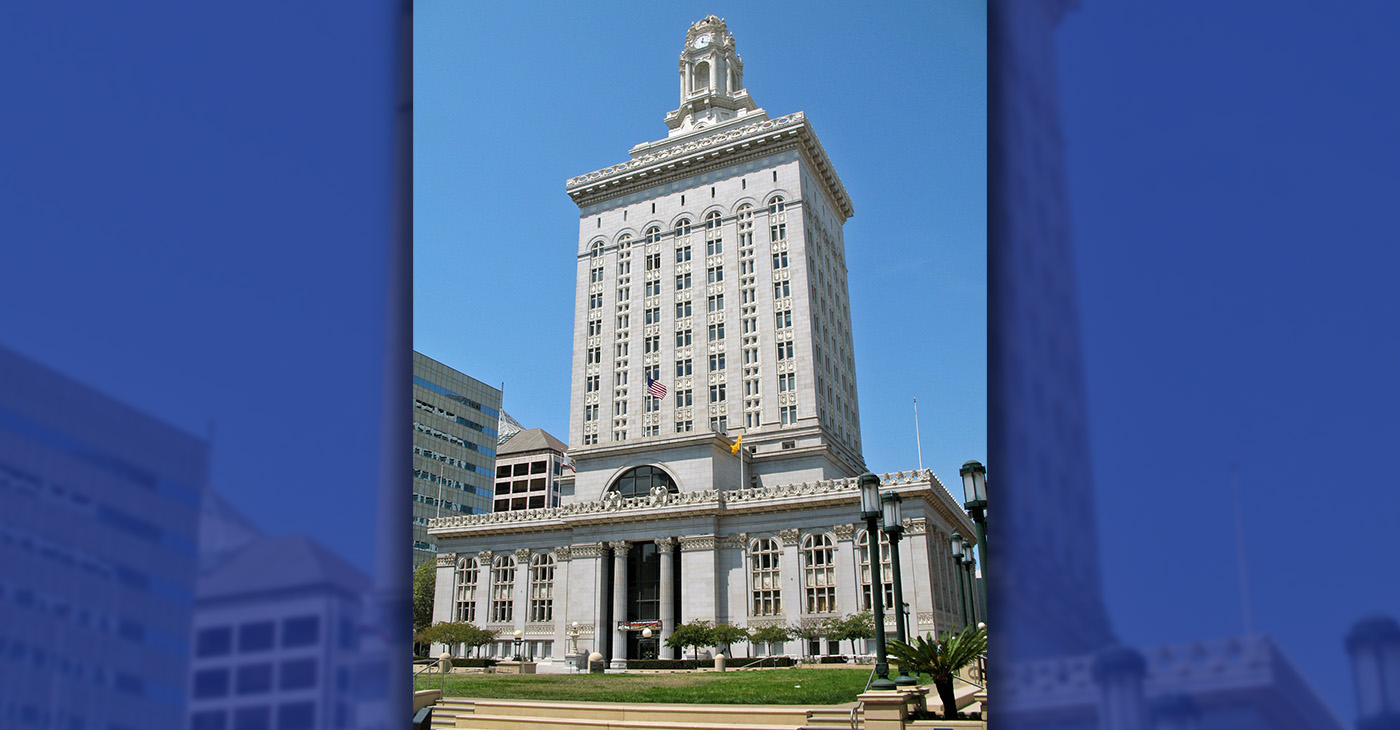Coronavirus
California Anticipates Budget Cuts If U.S. Doesn’t Provide Help
When Gov. Gavin Newsom presented his revised budget for the 2020-21 fiscal year, his new spending plan includes new priorities that reflect a projected $54.3 billion budget deficit brought on by the COVID-19 pandemic.
It has $14 billion in spending cuts, including a 10% salary reduction for state workers, that would be triggered only if the federal government does not provide funding to California to cover some of its coronavirus losses before the fiscal year begins July 1.
There are also billions of dollars in cuts to education and Medi-Cal services in the proposal.
“The federal government has a moral and ethical and economic obligation to help support the states,” the governor said. “This is an opportunity to make real our purpose and advance our values. Federal government, we need you. These cuts can be negated. They can be dismissed with your support.”
Newsom also expressed support for the U.S. Congress’ Health and Economic Recovery Omnibus Emergency Solutions (HEROES) Act, which the U.S. House of Representatives passed on May 16. The $3 trillion legislation includes another round of $1,200 stimulus payments to individuals, an extension of the extra $600 per month in unemployment benefits, and nearly $1 trillion in assistance for state and local governments.
The new forms of aid the HEROES Act passed in Congress …include $200 billion in “hazard pay” for essential workers, $75 billion for COVID-19 testing and contact tracing and a $75 billion fund to help homeowners with mortgage payments and property taxes. It would also extend student loan relief to borrowers with private loans, who were left out of the CARES Act relief.
Assemblymember Shirley Weber (D-San Diego), who serves as chair of both the California Legislative Black Caucus and the Assembly Budget Subcommittee on Public Safety, joined the governor and other state leaders calling on the federal government to lend California a helping hand.
“As the governor said, what we are facing is unprecedented,” said Weber. “Fortunately, the Legislature has worked to reduce the impact through investing in reserves and a rainy-day fund. We will, however, need the help of the federal government and the passage of the HEROES Act to ensure that we get back on a more secure footing to recover from the economic impacts of COVID.”
The aid efforts for essential workers and testing included in the HEROES Act would proportionally affect more Black Americans, as studies have shown that Black people are more likely to be essential workers, and more likely to live in urban areas hit hard by the virus.
The Congressional Black Caucus championed the concerns of Black households and businesses, sending out a press release that outlined a proposal submitted to House and Senate leadership on April 29.
“The proposal includes policies to safeguard social safety net benefits; keep Black businesses afloat; support students and educational institutions; address health care inequities; strengthen infrastructure in the Black community; protect Black farmers; keep people in their homes; ensure incarcerated individuals are protected; and much more,” the Congressional Black Caucus press release reads.
The Western States Pact — a regional coalition that includes California, Washington, Oregon, Colorado, and Nevada — sent a letter to Congress asking for $1 trillion in state and local government aid on May 11. The California Labor Federation, California State Association of Counties, League of Cities and California Travel and Tourism Coalition have also endorsed the HEROES Act for its inclusion of state and local government aid.
Republicans in the California Legislature have also expressed skepticism about the governor’s budget plan.
“While additional federal assistance can help cover some of the deficit, expecting Uncle Sam to come to the rescue is wishful thinking,” said Sen. Patricia Bates (R-Laguna Niguel).
“Raising taxes makes no sense when many families and businesses have significantly less income to live with. That is why a final 2020-21 budget must help support a safe reopening of the state’s entire economy. Workers and businesses cannot earn income and pay taxes if our economy continues to be in an induced coma,” she said.
Weber said even though California is asking for federal aid, the state’s legislators still have the responsibility to find solutions that work for Californians, especially those hit hardest by the pandemic.
“Let’s be clear; we are not absolved of having a vision for the state. We must strive for a recovery, but we have to ask what that recovery will mean,” she said. “Before this crisis hit, we had communities underserved by the healthcare system, ignored by the education system, and robbed of economic opportunity. All of this is underscored by the disproportionate impact of COVID on these communities.”
Activism
ESSAY: Technology and Medicine, a Primary Care Point of View
The COVID-19 pandemic, for example, restricted millions of people to their homes, which required reliance on the internet for communication and information. Personal internet searches became essential to understanding information about COVID, human physiology, symptoms, and keeping up with vaccine updates. However, this increase in independent online research resulted in people accessing more misinformation circulating on the internet. This posed a challenge for medical providers trying to treat patients according to research-based guidelines. With so much information within reach, it was difficult for providers to help their patients distinguish between legitimate evidence-based sources and opinion, speculation, and fabrication.

Dr. Adia Scrubb
Special to California Black Media Partners

Technology has enhanced communication between medical professionals and patients; improved patient care management; and eased access to care and information, benefiting both patients and medical clinicians.
However, despite the ease and many conveniences these patient care improvements have ushered in, adequate patient care still includes physician supervision, examinations, and interaction, which present challenges for keeping up with demands on the healthcare system and accurate patient education.
Technology has made more educational resources available at our fingertips, and it has created independence for those who want to know more about their bodies.
The COVID-19 pandemic, for example, restricted millions of people to their homes, which required reliance on the internet for communication and information. Personal internet searches became essential to understanding information about COVID, human physiology, symptoms, and keeping up with vaccine updates. However, this increase in independent online research resulted in people accessing more misinformation circulating on the internet. This posed a challenge for medical providers trying to treat patients according to research-based guidelines. With so much information within reach, it was difficult for providers to help their patients distinguish between legitimate evidence-based sources and opinion, speculation, and fabrication.
Nowadays, patients continuously arm themselves with medical information and challenge clinicians with the research they gather from internet sources to advocate for themselves and their care. This often leaves medical professionals with the complex task of navigating challenging discussions, pointing patients to validated and verified medical information, and following evidence-based medical guidelines for treatment.
Reviewing information before an appointment can certainly make an office visit much more productive, but it is essential to acknowledge the possible bias and limitations of internet searches. Consideration of the author, source, and date of the information may help determine its validity.
Furthermore, simply asking medical professionals for their preferred patient information resources will direct patients to safe and validated information that is in line with standards of care practices. This can help patients better understand the recommendations from their doctors and streamline their internet searches.
Access to individual online medical record information, such as blood tests, MRI reports, and office visit notes, has been a significant expansion of technology in medicine. This digitization of medical information enables and positions patients to take a leading role in managing their care. What used to be multiple sheets of paper in a large file folder is now a click away at any time. Despite these benefits, instant access can be overwhelming for both patients and medical providers, especially since patients, in many instances, can receive their test results online before the physician has had the opportunity to review them.
Patients may review the office visit notes or their lab results out of context or misinterpret information, which can lead to anxiety, confusion, and fear. Clinicians are put in a difficult position when they are not able to suddenly break away from their scheduled office visits to reassure an unscheduled patient about their results and next steps.
Medical providers have tools to assist with identifying sensitive results that need urgent review, and efforts are made to notify anxious patients as soon as possible. However, a patient can be proactive in scheduling a follow-up visit ahead of time to review results with their provider specifically. This can help patients avoid the stress of suddenly trying to get a hold of their doctor when dealing with unclear or concerning results. Normal test results often don’t require explanation, but allowing several days for your provider to work through hundreds of test results before sending messages requesting clarification will help medical professionals prioritize their responses to test results based on medical urgency.
Technological improvements such as online messaging and video/telephone appointments have made access to care much easier both for patients and clinicians. Telephone and video visits have been especially beneficial for patients who are elderly, disabled, or do not have access to transportation. However, the increase — and ease of — access has created much higher demand for physician time both during and outside of the office visit. Test results, patient messages, insurance forms, emails, and medication requests are all pouring in while providers conduct their daily scheduled appointments. Thus, very little time is left in the day for a clinician to respond to every email, fill out every form, and review every lab result when they are responsible for 1,800 or more patients.
This situation, unfortunately, creates a perceived delay in response in a culture where an instant response is expected from messaging and phone calls. But the reality is that the medical provider is constantly playing catch up to thousands of inquiries due to the around-the-clock online access patients now have.
Patients can make the most of their experience and their physician’s time by taking the time to learn their physician’s communication preferences. Despite the multiple modalities of access (telephone, email, video, in-person), a medical provider will have a preferred method of communication with their patients. Some may ask their patients to make an appointment to explain a complex topic, instead of responding to multiple messages. Others may prefer to communicate via phone call if they have to deliver bad news.
There will likely be more medical providers who prefer to communicate only through email or video appointments as remote work becomes more common. If a patient’s communication preferences align with their physician’s preferences, it will create a stronger patient-doctor relationship and foster more effective and impactful communication.
The expansion of technology in medicine has fostered better collaboration, communication, and education between patients and their medical professionals. Combining electronic resources with rapport, mutual respect, and trust for providers will help patients navigate this new landscape of healthcare.
About the Author
Dr. Adia Scrubb, MD, MPP, is a Board-Certified Family Medicine Physician currently practicing in Solano County.
Alameda County
After Years of Working Remotely, Oakland Requires All City Employees to Return to Office by April 7
City Administrator Jestin Johnson recently told city unions that he is ending Oakland’s telecommuting program. The new policy will require employees to come to work at least four days a week. These new regulations go into effect on Feb. 18 for non-union department heads, assistant and deputy directors, managers, and supervisors. All other employees must be back at work by April 7.

By Post Staff
The City Oakland is requiring all employees to return to the office, thereby ending the telecommuting policy established during the pandemic that has left some City Hall departments understaffed.
City Administrator Jestin Johnson recently told city unions that he is ending Oakland’s telecommuting program. The new policy will require employees to come to work at least four days a week.
These new regulations go into effect on Feb. 18 for non-union department heads, assistant and deputy directors, managers, and supervisors. All other employees must be back at work by April 7.
The administration may still grant the right to work remotely on a case-by-case basis.
In his memo to city unions, Johnson said former President Joe Biden had declared an end to the pandemic in September 2022, and that since then, “We have collectively moved into newer, safer health conditions.”
Johnson said “multiple departments” already have all their staff back in the office or workplace.
The City’s COVID-era policy, enacted in September 2021, was designed to reduce the spread of the debilitating and potentially fatal virus.
Many cities and companies across the country are now ending their pandemic-related remote work policies. Locally, mayoral candidate Loren Taylor in a press conference made the policy a central issue in his campaign for mayor.
City Hall reopened for in-person meetings two years ago, and the city’s decision to end remote work occurred before Taylor’s press conference.
At an endorsement meeting last Saturday of the John George Democratic Club, mayoral candidate Barbara Lee said she agreed that city workers should return to the job.
At the same time, she said, the city should allow employees time to readjust their lives, which were disrupted by the pandemic, and should recognize individual needs, taking care to maintain staff morale.
The John George club endorsed Lee for Mayor and Charlene Wang for City Council representative for District 2. The club also voted to take no position on the sales tax measure that will be on the April 15 ballot.
Bay Area
Authorities Warn: There’s a COVID Surge in California
According to data estimates by the Centers for Disease Control and Prevention (CDC), the coronavirus in California’s wastewater has spiked for eight consecutive weeks. Hospitalizations and emergency room visits have also increased since the rise of the new subvariants. Over the last month, Los Angeles County experienced an average of 389 hospital patients per day that tested positive for the coronavirus. The FLiRT subvariants such as KP.3.1.1. Made up over 2% of coronavirus samples nationwide, an increase of more than 7% last month.

By Bo Tefu, California Black Media
California is experiencing a COVID-19 surge this summer, experts warn, as numbers of infections increased for the third month this year.
State public health authorities attribute the summer COVID surge to more infectious subvariants that have emerged as the coronavirus evolves.
Dr. Elizabeth Hudson, regional chief of infectious disease at Kaiser Permanente Southern California, stated that subvariants of COVID-19 called FLiRT increased in recent months, particularly one named KP.3.1.1 that has become the most common strain in the country.
Dr. Peter Chin-Hong, an infectious diseases expert at UC San Francisco, said that the subvariant KP.3.1.1 seems most adept at transmission.
“The subvariant is the one that people think will continue to take over, not only in the United States, but … around the world,” Chin-Hong said.
According to data estimates by the Centers for Disease Control and Prevention (CDC), the coronavirus in California’s wastewater has spiked for eight consecutive weeks. Hospitalizations and emergency room visits have also increased since the rise of the new subvariants. Over the last month, Los Angeles County experienced an average of 389 hospital patients per day that tested positive for the coronavirus. The FLiRT subvariants such as KP.3.1.1. Made up over 2% of coronavirus samples nationwide, an increase of more than 7% last month.
The majority of the people who tested positive for COVID-19 complained of a sore throat and a heavy cough. Risk factors that can increase the illness include age, underlying health issues, and vaccine dosage.
Health experts stated that the demand for the COVID-19 vaccine has increased in Northern California. However, people are having a hard time getting the vaccine due to the increasing number of cases.
-

 Activism3 weeks ago
Activism3 weeks agoOakland Post: Week of November 12 – 18, 2025
-

 Activism3 weeks ago
Activism3 weeks agoIN MEMORIAM: William ‘Bill’ Patterson, 94
-

 Activism3 weeks ago
Activism3 weeks agoHow Charles R. Drew University Navigated More Than $20 Million in Fed Cuts – Still Prioritizing Students and Community Health
-

 Bay Area3 weeks ago
Bay Area3 weeks agoNo Justice in the Justice System
-

 #NNPA BlackPress3 weeks ago
#NNPA BlackPress3 weeks agoLewis Hamilton set to start LAST in Saturday Night’s Las Vegas Grand Prix
-

 #NNPA BlackPress2 weeks ago
#NNPA BlackPress2 weeks agoBeyoncé and Jay-Z make rare public appearance with Lewis Hamilton at Las Vegas Grand Prix
-

 Activism2 weeks ago
Activism2 weeks agoOakland Post: Week of November 19 – 25, 2025
-

 #NNPA BlackPress3 weeks ago
#NNPA BlackPress3 weeks agoThe Perfumed Hand of Hypocrisy: Trump Hosted Former Terror Suspect While America Condemns a Muslim Mayor




























































